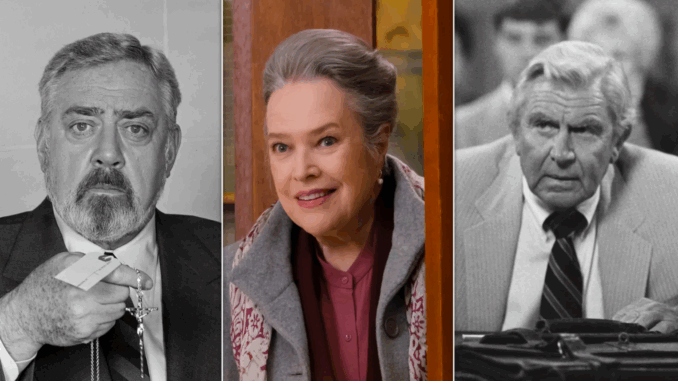
In an era of fast edits and flash-bang courtroom dramas, CBS’ Matlock dares to take its time—and in doing so, delivers something more lasting.
Most legal dramas today live on tension and tempo. Objections fly. Verdicts arrive in under 40 minutes. But Matlock—especially in its first season—was a different kind of beast: it was slow, deliberate, and oddly meditative.
And that’s exactly what makes it work.
Kathy Bates’ Madeline “Matty” Matlock doesn’t solve cases by yelling across courtrooms or launching surprise evidence. Instead, she listens. She observes. She allows silences to stretch. And when she speaks—it lands like a scalpel.

“In a world addicted to noise, Matlock whispers,” one critic wrote in Variety. “And that whisper cuts deeper.”
The show’s cinematography and pacing echo this restraint. Long walks down courthouse corridors. Lingering shots of Matty scribbling in notebooks. Quiet, awkward dinners where characters say too little, too late. These moments don’t scream for attention—they earn it.
This slowness also mirrors the reality of legal systems, especially for those without power. Justice is slow, frustrating, and sometimes manipulated by people like Senior (Beau Bridges), whose authority often shields the guilty.
So when Matty moves deliberately—probing a lie here, exposing a cover-up there—it’s not dull. It’s radical patience in pursuit of truth.
And for viewers burnt out on the speed of streaming content, Matlock offers a different pace. A quiet storm. A low simmer of suspense. And ultimately, the satisfaction of watching someone win not with power—but with precision.